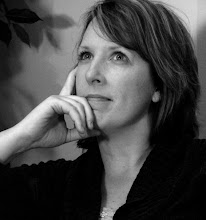I garden for many reasons: to feed my husband and myself, to eat healthy foods, to connect with nature, to live at least part of my life more "naturally," and to enjoy the peace that comes from the activity itself.
One of the major reasons I garden is because I am convinced that our food system is broken. It isn't just broken at the grocery stores, which offer us highly processed foods, foods that have traveled hundreds, sometimes over a thousand, miles and are gas-ripened before arriving at our stores; it's also broken
- at the farm level (where corporate farmers in protective gear spray food with pesticides and herbicides, and meat farmers inject animals with growth hormones and antibiotics),
- at the processing level (where foods are subjected to ammonia or chlorine baths, irradiation, and other methods to kill virulent bacteria),
- at the scientific level (where the very DNA of our foods is forcibly invaded by viruses, genes from other crops or animals, sometimes gold or electricity, and antibiotic markers in order to force the DNA to accept the foreign genetic material),
- at the government level (where agents from corporate farming and other farming-related entities, such as seed companies, are welcomed into decision-making positions that regulate the very industries they come from),
and more. And consumers, unfortunately, know very little about any of this. We go to the grocery store and assume that if it is on the shelves, it is safe for us to eat. We assume that our government is looking out for our health and welfare. We assume that companies want to do what's right, that their motivations are to make a healthy profit while providing us with food we
need. We avoid documentaries and other information that tells us about the unhealthy aspects of our food because we don't want to know.
I want to know what is in my food. I want to know that my food is natural, safe, and healthy. But it isn't only our food system that is broken; it is our entire system. Commercials groom us to be perfect consumers and enter into unhealthy debts; our government tells us that we have a voice, but our legislators ignore that voice or deliberately vote contrary to that voice for personal gain. News channels spin the news to satisfy one political party or another instead of offering unbiased reporting, all the while instilling fear in its viewers or listeners. Corporations are granted individual status, allowed to spend as much money as they like to influence our government, and despite not having a moral conscience (other than to make the largest profit possible for their shareholders), they are allowed to endanger the health and welfare of the consumer with little or no liability.
Enter Mich

ael Bunker's book, due out March 4, titled "Surviving Off Off-Grid." Bunker, too, sees that our world stopped at some point "progressing" and is, in fact, headed for a fall. Anyone who has taken a history class has heard or read the philosopher Santayana's admonition that "those who forget the past are condemned to repeat it," and Bunker shows us that we have indeed forgotten that great, progressive cultures of the past, such as Ancient Greece and Rome, fell--and that our consumerist society is headed in the same direction.
Bunker's book asks us to question
everything rather than make assumptions or blindly accept the status quo . . . and to do something about it. We've heard about surviving "off-grid," but what that usually means is that we are using some alternative method for power, whether wind or solar. But in order to survive "off-grid," we have to be connected to the grid itself! Bunker has been living what he calls "off off-grid" for years and offers readers the chance to learn from his experiences.
I haven't read the book; I have only read one chapter of the book, which was about food and was an early version of the chapter as it undoubtedly appears in the book. But what I read was well-written, engaging, informational, and inspiring. That chapter made me take a look at food in a much different way than I had previously.
Maybe you're comfortable with the status quo. Maybe you don't want to know what's broken in our society or the downfall we're headed for. Maybe you want to see the world through rose-colored glasses and believe that it is all sunshine and daisies. If so, feel free. But you will still glean a lot of interesting and useful information from this book. And maybe you'll learn a few ways that you, individually, can change your life--even if you don't go completely off off-grid. For those of you who, like me, realize our society is broken, you will find hope and ways of fixing some of that brokenness--at least in your own life.
A trailer video for the book is available on YouTube, and an
interview with Bunker is available on the
Nourishing Days blog. If you do nothing else, view the trailer. The book will be available for sale on
Amazon beginning March 4.




